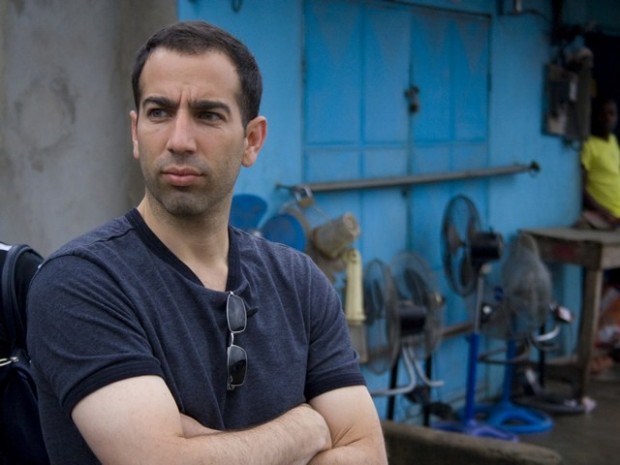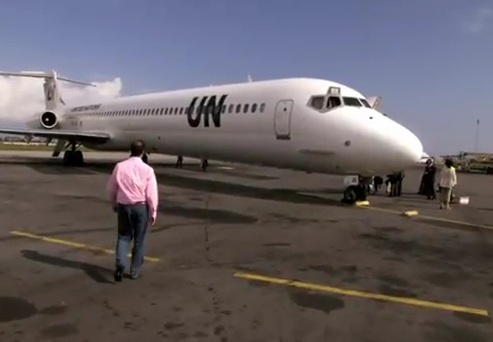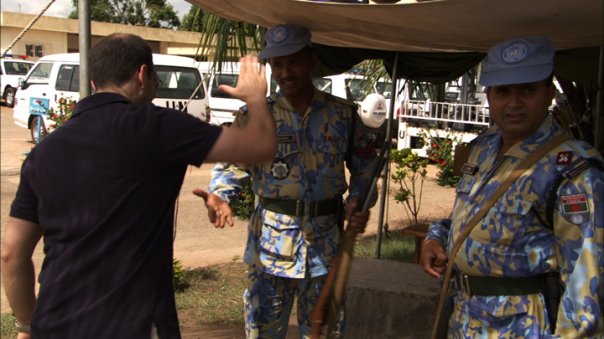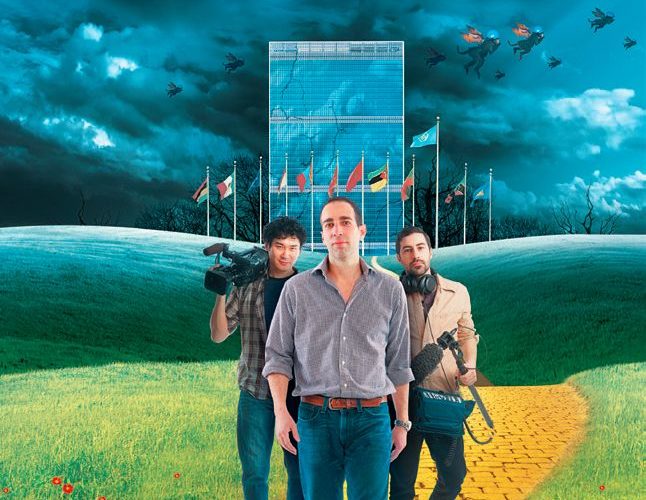The concept of the United Nations has long been a bit of a romantic idea. Born out of the chaos that was World War II, it was established to protect international peace and to promote a united approach to solving social, economic and humanitarian issues on a global scale. However, the organization has not always seen the kind of success we wish it could achieve. Ami Horowitz and Matthew Groff’s new film, U.N. Me, aims to take a critical look at the failures of the U.N. and what, if anything, can be changed about the organization for the better.

I was a bit of a skeptic at first, as this looked like it could devolve into an incredibly conservative take on United Nations. Most of the Congress members interviewed in the film are Republican, a political party that has been opposed to the organization for a long while.
However, the film challenged some of my beliefs on the nature of the United Nations’ Human Rights work. Noting the work the body has done to provide food and medicine to the poor, some slack is cut at the beginning. It doesn’t go into the Millennium Development Goals, one of the U.N.’s most significant projects of the last decade and a half, nor does it mention Israel, a much discussed moral grey spot on the international level.
Horowitz and Groff take a look instead on the peacekeeper misconduct in Cote d’Ivoire and the failure to prevent the genocide in Rwanda. Instead of focusing their attentions on the potential civil war, peacekeepers spent their time in Cote d’Ivoire relaxing on the beach and in the brothels nearby. In Rwanda, troops were ordered to abandon the Tutsis they had been tasked to protect against the Hutus aiming to kill them. The film states the Tutsis even begged the troops to kill them rather than suffer death by Hutu blade. Instead, the vans drove off and left them to their fate.
 The documentary hits its stride as it opens up the extent to which the human rights abuses had occurred under the United Nations’ gaze. Having long known that human rights work in conflict zones has left much to be desired, hearing the stories still left me shocked.
The documentary hits its stride as it opens up the extent to which the human rights abuses had occurred under the United Nations’ gaze. Having long known that human rights work in conflict zones has left much to be desired, hearing the stories still left me shocked.
I would love to see Horowitz develop his own voice more as he does admit that Sacha Baron Cohen and Michael Moore influenced his film style. However, writing comedy into a hard-hitting documentary can be challenging and he sometimes seems like he’s trying a little too hard.
While the humor shines through in many instances, his “peacekeepers gone wild” segment was one of several jokes that ran a little too long to keep me amused. The documentary’s strength isn’t in the humor so much as it’s in the honesty. Horowitz’ determination to speak to officials and to learn as much as he can from experts shows how much he cares about the subject material.

His frustration when he grabs the microphone to tell a scattered group of delegates at the 2009 Durban Review Conference that they have “squandered the opportunity the world has given you,” feels honest and courageous. Unfortunately, the film fails to fully use this narrative momentum. We’re never sure if he wants viewers to start a picket line of protesters outside of the United Nations Headquarters in New York or to call our congressmen and tell them to stop sending money to the organization or maybe to just to give up on the notion of international human rights work as a whole. I’m hoping that the filmmakers provide a call-to-action on further steps for viewers to take to encourage change. Otherwise, it just seems like the main message of the film is to get angry or abandon hope in the U.N.
Horowitz is clever, intelligent and shows a lot of potential and spirit as a filmmaker. And while U.N. Me does not offer a conclusive message one would like, the film is a promising first effort that challenges the viewer to think critically about the United Nations as a whole. Horowitz and Groff are promising newcomers and I’m looking forward to seeing them develop as filmmakers in the future. Until then, this is a worthy stepping stone.
U.N. Me is now in limited release and on VOD.

